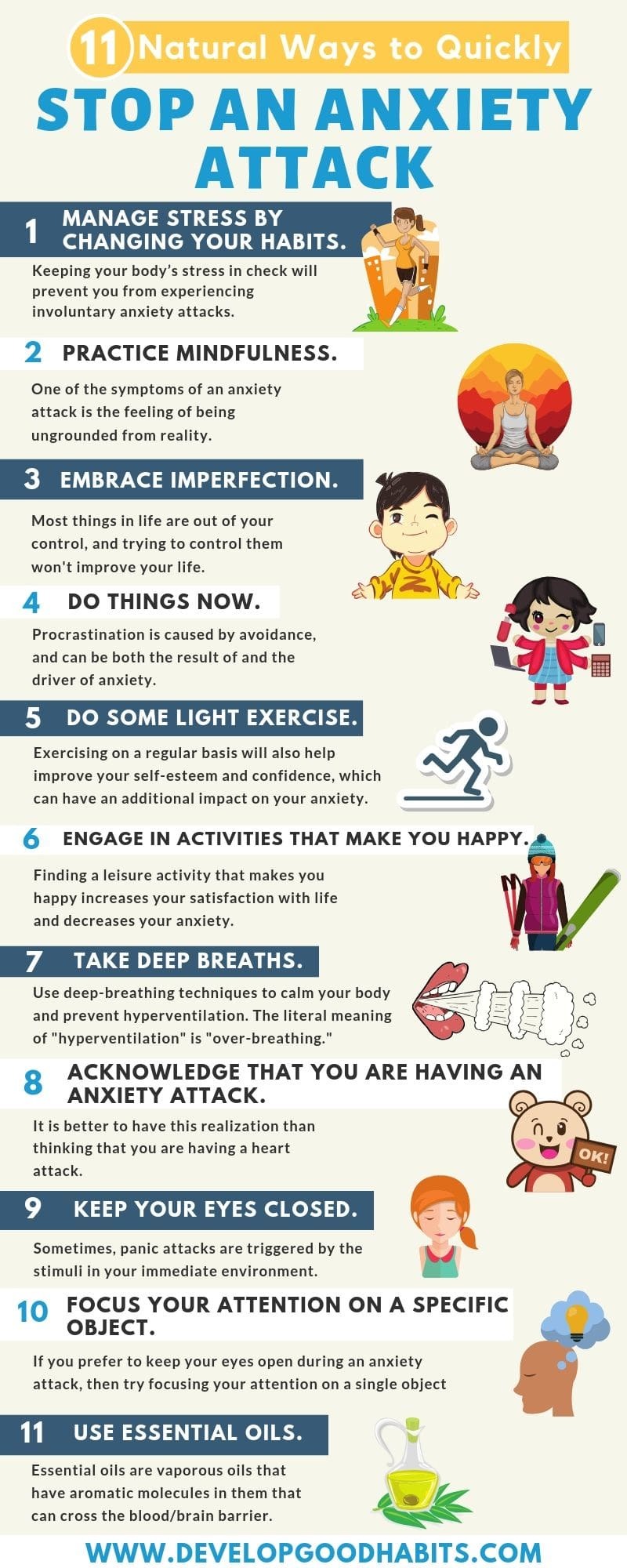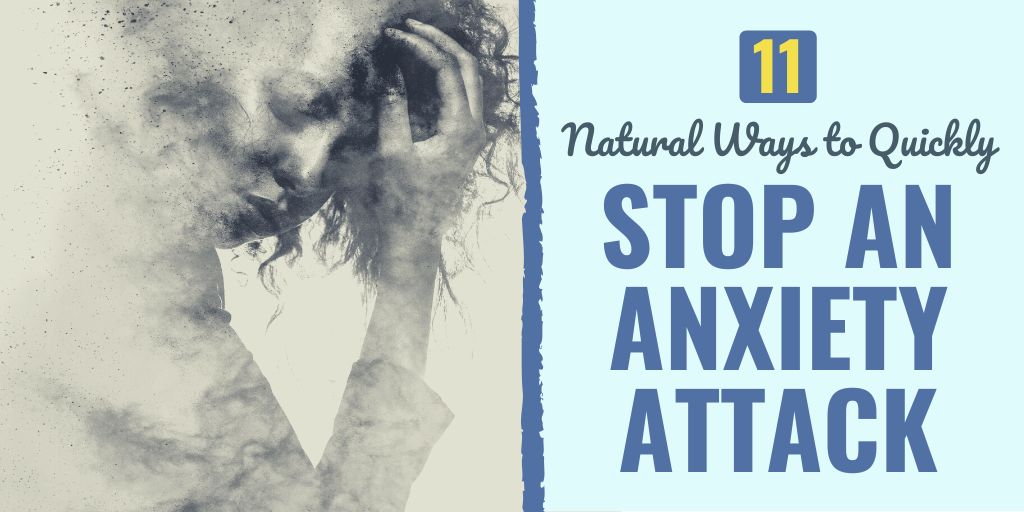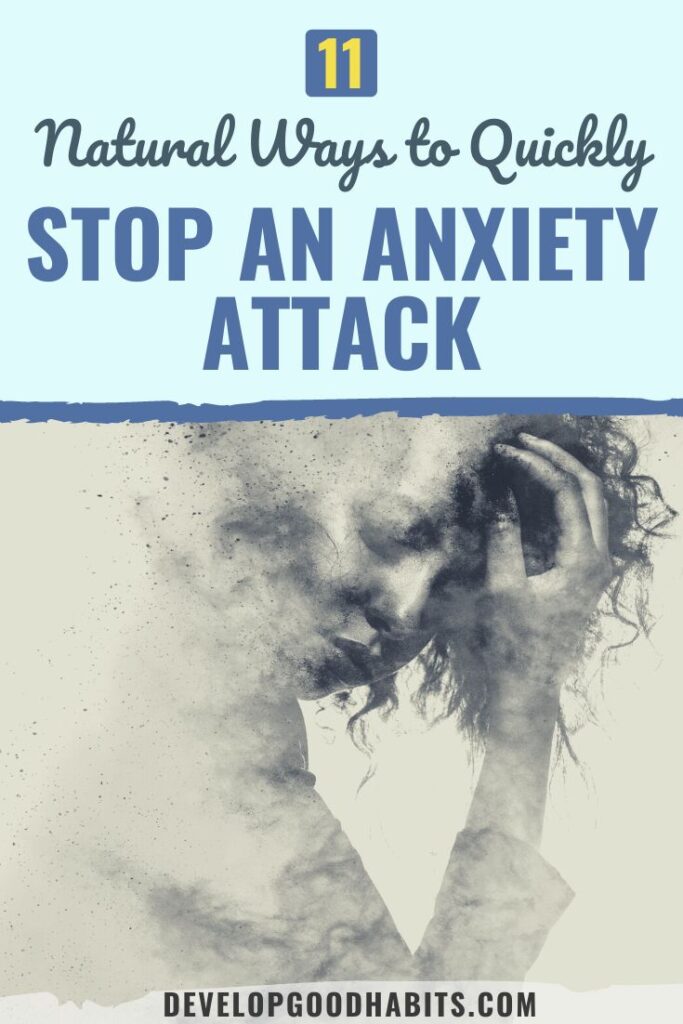Do you ever feel a sudden surge of fear?
Perhaps you feel anxious about an upcoming major exam, or maybe you’re walking alone on a dark street and are apprehensive of what would happen if a stranger sprang from the bushes. Or you simply feel overwhelmed by a laundry list of tasks to complete.
Regardless of the circumstance, many people experience what’s commonly known as an “anxiety attack.”
Fortunately, it’s perfectly normal to feel anxious when things are uncertain and the possibility of failure or danger is present.
A little bit of anxiety is actually a good thing, because the anxiety you feel bestows upon you a heightened alertness that helps keep you focused and motivates you to come up with solutions to the problems you are facing.
In an anxiety attack, however, a person will feel overwhelming terror or apprehension for no apparent reason. It can occur unexpectedly, whether the person is in a calm state or under stress. It might be related to an anxiety disorder, or can be one of the symptoms of a panic disorder.
The condition is very common. The good news is that there are treatments and techniques for stopping it effectively.
In this article, we will show you 11 natural, drug-free strategies you can use to stop an anxiety attack.
First, let’s have a quick look at the dangers of this condition.
What Are the Dangers of an Anxiety Attack?
During an anxiety attack, one’s thoughts are in chaos. The person goes through a terrifying experience.
They experience heart palpitations, which can sometimes feel similar to having a heart attack. One can also experience shortness of breath, lightheadedness, numbness, the feeling of being detached from reality, and a feeling that the world is spinning out of control.
You may experience one, several, or all of these symptoms. Everyone can have unique experiences during anxiety attacks.
Those who constantly experience this condition quickly realize that it could negatively impact their quality of life. If you don't learn how to control your anxiety attacks, you're likely to develop ongoing fears of experiencing more attacks, and possibly develop phobias.
In fact, it can lead you to become so afraid that you give up ordinary parts of your life that were once enjoyable. When left untreated, anxiety can even be fatal.
Common Triggers of Anxiety Attacks
It is difficult to pinpoint the exact cause of an anxiety attack. However, certain things are commonly identified as triggers for an attack.
It may occur without prior warning due to stress from events, being in an unfamiliar situation, dreams, and even the actions of other people.
Here’s a three-minute overview of anxiety attacks, which features:
Even though anxiety attacks are often extreme physical and emotional experiences, they happen for specific reasons.
If you are able to understand these reasons, you can gain control of your anxiety attacks instead of allowing them to take control of you. Learning the necessary strategies to control anxiety attacks can free you from their grasp.
11 Strategies for Stopping Anxiety Attacks in the Long Term
The following 11 strategies can help you cope with and lessen the occurrences of anxiety attacks, and even stop them once and for all.
1. Manage stress by changing your habits.
Keeping your body’s stress in check will prevent you from experiencing involuntary anxiety attacks. You will also be able to increase the amount of control you have over your body’s reactions to perceived threats when stress is minimized.
For example, when you experience something that at first seems very threatening, if your overall stress level is low, you will have the capacity to recognize if the stimulus is actually a threat or if it is just your anxiety acting up.
If your stress level is constantly elevated, your body is more likely to act involuntarily, which can decrease your control over your mental and physical capacities.
This means that you may not be able to recognize that a stimulus actually poses no threat to your safety, and therefore experience unnecessary anxiety in its presence. You can greatly decrease your stress by practicing good habits.
To stay on track on developing good habits, you can create SMART goals that will help you alleviate your anxiety. Learn more about SMART goals by watching the video below.
2. Practice mindfulness.
One of the symptoms of an anxiety attack is the feeling of being ungrounded from reality. Mindfulness can teach you how to be aware of your surroundings, helping you stay grounded and in the now.
One way to be mindful during an anxiety attack is to recognize the fact that your body is doing exactly what it is supposed to do in response to perceiving a threat.
Whenever you believe danger is imminent, your body activates a stress response, which is what humans used to rely on for survival. Your body always has a stress response when it senses danger, and the stronger the response, the more anxious you feel.
If you're unfamiliar with how your body’s survival system works, or its triggers, the physical changes that occur can seem threatening and frightening. However, if you are mindful of the process and remain in the moment, you will be able to gain control over the anxiety attack.
3. Embrace imperfection.
Overachieving can take a toll on your health. Some people get very stressed or anxious when life takes an unexpected turn, whether it is just a last-minute change of plans or an unforeseen mishap in the middle of a work presentation.
Having control and certainty grants you a sense of security, so it is natural to have the desire to control things in order to feel safe. Being a perfectionist may be your way of coping with anxiety.
Most things in life are out of your control, and trying to control them won't improve your life. Allowing yourself to do things “badly” will release you from the pressure of worrying that the task you’re doing should be perfect.
It will allow you to see that you can do something that isn't “perfect” and everything will still be just fine.
4. Do things now.
Procrastination is caused by avoidance, and can be both the result of and the driver of anxiety.
The anxiety that comes with procrastination will keep festering and growing with time, and it can lead you to look for ways to reduce the anxiety component rather than addressing the actual work that is being left undone. You must recognize that avoiding a task always makes it seem more daunting than it truly is.
It doesn’t take long for procrastination to start building up, leading to bouts of acute anxiety and frustration. Delaying tasks can add to more anxiety as things left undone pile up and call for your attention.
However, if you learn how to stop procrastinating, you can prevent a panic attack from occurring. Once you start taking action towards the things that need to get done, anxiety is soothed and you can start to feel satisfied with yourself again.

5. Do some light exercise.
An exercise that’s gentle on your body (e.g., swimming or walking) can help raise your endorphin levels. These hormones can help improve your mood and keep anxious thoughts at bay.
Doing as little as 5 to 10 minutes of aerobic exercise can immediately improve your anxiety level, but if you get into a regular exercise routine, you will be able to see more long-term improvements that decrease your general anxiety.
Exercising on a regular basis will also help improve your self-esteem and confidence, which can have an additional impact on your anxiety.
Some benefits that doing exercise has on anxiety include:
6. Engage in activities that make you happy.
Finding a leisure activity that makes you happy increases your satisfaction with life and decreases your anxiety.
Though it may sometimes seem frustrating, finding the right coping skills that work for you can require some trial and error. Just like anything else, it is important to keep an open mind and try new things.
Some hobbies are known to help reduce anxiety. Things like photography, yoga, puzzles, journaling, and knitting are all popular choices to ease your mind. Or, maybe you have a friend who can always make you laugh, or a go-to movie that puts a smile on your face.
Learn how to build a daily personal journaling habit.
Reducing anxiety is often about becoming distracted, since your mind can be your worst enemy during these times. Talk to someone you like and trust to keep your mind off of your symptoms.
Having a supportive friend gives you an added boost of confidence and lets you know that you have someone with you if something goes wrong. Having things in the back of your mind that you know will make you happy will give you something to fall back on when you are feeling anxious.
As we’ve discussed above, an anxiety attack can occur without prior warning, and can be triggered by anything. While you may be caught seemingly out of nowhere, there are steps you can take to help lessen the duration of a panicked state, or immediately stop it from becoming a full-blown anxiety attack.

The following step-by-step suggestions will show you how to stop an anxiety attack when you’re already experiencing one.
7. Take deep breaths.
Use deep-breathing techniques to calm your body and prevent hyperventilation. The literal meaning of “hyperventilation” is “over-breathing.”
But contrary to how it makes you feel, hyperventilation is not caused by getting an insufficient amount of air. It actually refers to the act of breathing out carbon dioxide too fast, which causes too much oxygen to enter into your lungs.
While your anxiety can be the cause of hyperventilation, hyperventilation can also cause (or worsen) the most uncomfortable symptoms of anxiety.
This calming video is designed to help you catch your breath when you find yourself in a panicked state.
8. Acknowledge that you are having an anxiety attack.
It is better to have this realization than thinking that you are having a heart attack. When possible, write down what you’re anxious about at that moment. The process of writing down your fears can help lessen their crippling effects.
Also, acknowledge that there will be an end to the anxiety attack. No matter how powerful the symptoms are, you know that they will stop.
You can make them end faster by using the tools mentioned in this article, but even if you forget everything you have learned during your moment of panic, you can still remember that there is an end in sight.
Riding out the feelings knowing that they will end can help you stay calm, which will also turn off your stress response and anxiety attack.
9. Keep your eyes closed.
Sometimes, panic attacks are triggered by the stimuli in your immediate environment. Closing your eyes helps you block out an overwhelming sight, and allows you to focus on your breathing.
During this time, try to practice mindfulness, and just pay attention to your breath and everything your body is feeling. Recognize that you have the power to regulate those reactions. Remind yourself that you are safe.
10. Focus your attention on a specific object.
If you prefer to keep your eyes open during an anxiety attack, then try focusing your attention on a single object. The object must be clearly within your field of vision. Note every possible detail about it. Do this until the moment of anxiety has passed.
This will help distract you from your anxiety while allowing you to focus on something that is stable. Because anxiety can go wherever you do, you may find it helpful to carry a “comfort object” around with you.
This could be anything that you find to be soothing, as long as it is small enough to fit into your pocket or bag—maybe a smooth rock, a stress ball, a sentimental object, or anything else that you can hold.
Check out this post to learn how to practice mindfulness.
Your object will then be the thing that you automatically engage with if your anxiety begins to flare up. Paying attention to your comfort object will shift your focus away from your anxious thoughts and onto the object, which will decrease your symptoms of anxiety.
By carrying a comfort object with you that you can focus on when you're anxious, not only will you be reducing anxiety at that moment, you will also be training your brain to move its focus when your anxiety flares.
11. Use essential oils.
Scents can have an extremely powerful impact on your mood and emotions. Essential oils are vaporous oils that have aromatic molecules in them that can cross the blood/brain barrier.
Because of this, essential oils can have a direct effect on the areas of your brain that control stress, anxiety, and fear. It is important to find the oils that you like the best. Because scents are personal, you should avoid those that don't smell right to you and therefore increase your stress.
Certain essential oils have properties that can soothe, relax, and help you focus. Lavender has been proven to be effective against anxiety attacks because it is able to promote relaxation.
Research has suggested that lavender oil may have sedative properties, which may play an important role in its anxiety-reducing effects.
Breathing in the scent of lavender oil or applying it to your skin sends calming messages to your limbic system, which is an area of the brain that influences your nervous system and helps in the regulation of your emotions. This effect on your central nervous system results in a decreased level of anxiety.
You can simply put a few drops of lavender essential oil onto a cloth and inhale the scent. You can also use the oil in a diffuser, or add a few drops into the water of your humidifier.
Looking for natural ways to stop an anxiety attack? Read this infographic below to free yourself from anxiety.

Final Thoughts on How to Stop Anxiety Attacks
The steps listed above are just a few of the things you can do to overcome an anxiety attack.
Practice doing them when you are not anxious so you can develop the muscle memory to utilize the strategies when your anxiety appears and you are not thinking as clearly as normal.
Try doing these tricks for several weeks, and see the difference that they make in calming you down and making you feel less anxious.
Anxiety attacks are a condition that responds well to treatment. If you have experienced anxiety attacks or know somebody who has and it is affecting their quality of life, consulting a certified mental health practitioner about this is highly recommended.
And if you would like to create a permanent solution for managing the stress and anxiety in your life, then be sure to check out these articles:


